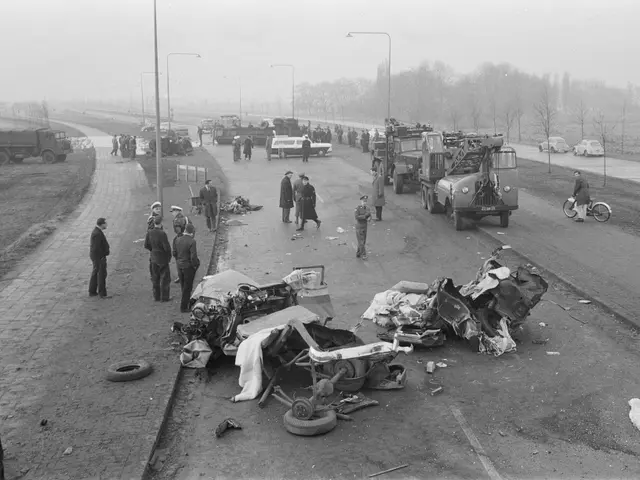Government Agency Conducts 171 Safety-Focused Inspections on Air Carriers Over the Past 5 Years, Reveals Minister
The Directorate General of Civil Aviation (DGCA) has launched a series of comprehensive safety audits on Air India and its group carriers, following the tragic crash of Air India flight AI 171 from Ahmedabad to London in June 2025. The audits aim to identify safety lapses and operational issues, and to enforce corrective actions to enhance safety and regulatory compliance in India's civil aviation sector.
The audit process consists of three stages: pre-audit, on-site audit, and post-audit. The audits are being led by multidisciplinary teams, including senior officials and subject matter experts. The primary focus areas of the audits are Safety Management Systems (SMS), operational efficiency, regulatory adherence, and crew and resource management.
During the audits, around 100 violations and observations related to safety and operational procedures were identified at Air India’s Gurugram base. Among these, 51 safety lapses were flagged specifically in the DGCA's annual audit, with 7 violations classified as Level 1, representing critical safety issues requiring immediate corrective action.
Critical lapses included the use of unapproved flight simulators, inadequate pilot training, crew rest and duty period violations, poor rostering systems, and issues with airfield qualification. The audits also revealed deficiencies in crew scheduling and rostering, leading DGCA to direct Air India to remove three officials from roles relating to these areas due to serious violations.
Air India acknowledged the DGCA findings and committed to submitting a detailed response with corrective actions within the stipulated time frame. DGCA has issued show cause notices to Air India for various violations and enforced immediate personnel changes in crew scheduling roles to enhance compliance.
Entities audited are required to submit Corrective Action Plans (CAPs) within 15 days of receiving findings, and the DGCA will closely monitor their implementation. The findings from the audits will be classified into three categories: immediate safety risks, significant but non-critical issues, and long-term observations.
Failure to comply with audit recommendations could result in penalties such as the suspension of operations or the cancellation of licenses in cases of safety norm violations. The DGCA has established Civil Aviation Regulations, which are continuously updated and aligned with international standards, to ensure a high level of safety in India's civil aviation sector.
It is worth noting that pilot training in India is governed by regulations in line with the International Civil Aviation Organisation (ICAO) and global best practices. The Directorate General of Civil Aviation has conducted 171 regulatory audits from 2020 to June 2025 to ensure safety in India's civil aviation sector.
Two incidents of turbulence and 10 incidents of emergency landing due to technical snags have been reported since January 2024. Air India is actively engaged in addressing the critical safety and procedural lapses identified during the audits to strengthen its safety culture and regulatory compliance.
The DGCA framework will have more severe penalties for non-compliance, including the grounding of airlines. The audits were triggered by a variety of factors, including aviation accidents, serious incidents, recurring non-compliance issues, and findings flagged by the ICAO. India has ratified the Montreal Convention, 1999, providing liabilities for compensation in case of death, delay, damage, or loss for international carriage.
Overall, the DGCA’s comprehensive audits post-crash have revealed critical safety and procedural lapses at Air India, prompting enforced corrective actions including personnel changes, improvement in pilot training, simulator approvals, crew rest compliance, and rostering systems. Air India is actively engaged in addressing these issues to strengthen safety culture and regulatory compliance in India's civil aviation sector.
- The financial implications of compliance with the corrective actions recommended by the DGCA could extend to the aviation industry, as Air India is required to submit Corrective Action Plans (CAPs) and may face penalties such as suspension of operations or cancellation of licenses in cases of safety norm violations.
- The audits have also highlighted the need for improved public-transit and transportation infrastructure in the wider context, as deficiencies in crew scheduling and rostering revealed during the audits could potentially impact the reliability and efficiency of India's ground transport services.








